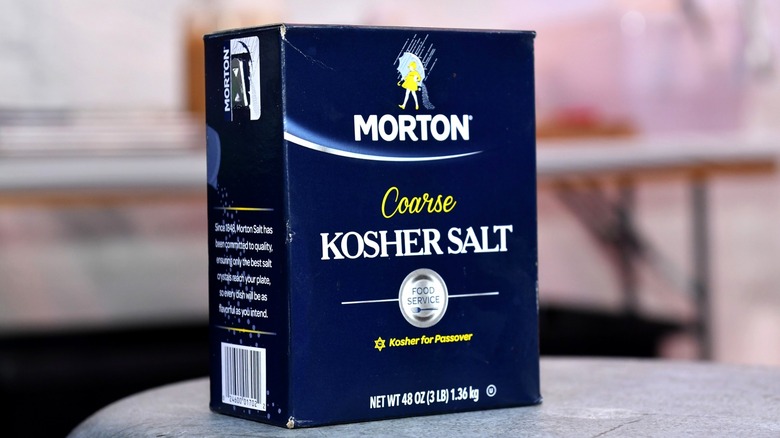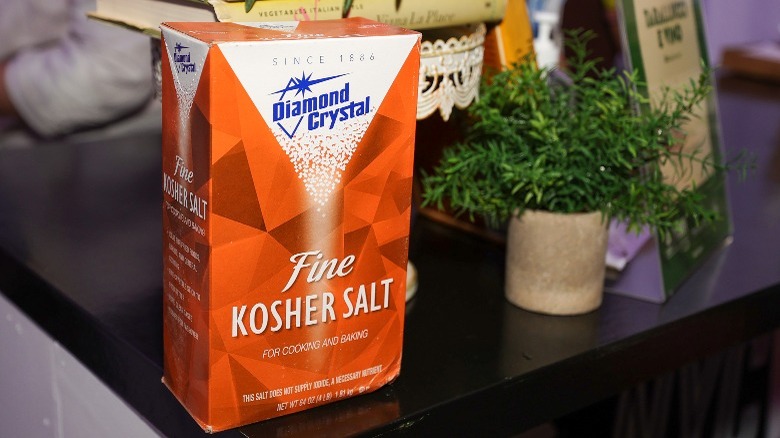Why You Can't Use Morton And Diamond Crystal Kosher Salt Interchangeably
As one of the five flavor profiles that your tongue can perceive, saltiness has a big influence on the food you're trying to cook. Too little salt can leave food bland, but too much salt can leave an unpleasant taste that's tricky to fix. There are also many types of salt that you'll see at the grocery store. In the case of kosher salt, distributors are going to have varying levels of sodium content in the product, which can throw a recipe out of balance even if you're measuring everything with precision.
Morton and Diamond Crystal, some of the most recognizable names in the kosher salt game, are not to be mistaken for each other. A ¼ teaspoon scoop of Morton salt is going to have around 480 milligrams of sodium, while the same measurement of Diamond Crystal will have about half as much at 280 milligrams. Morton salt is denser and more liquid-resistant. Diamond Crystal salt is hollower and dissolves quicker in liquid, a quality chefs prefer when cooking. It's even chef Ina Garten's salt of choice. Both brands have a purpose, so one isn't necessarily "right" or "wrong," but if a recipe calls for kosher salt, you'll either want to go with Diamond Crystal or use Morton at half of the recommended measurement.
The lowdown on kosher salt
Kosher salt is nearly pure sodium chloride without any additives like iodine, a necessary ingredient for human health found in iodized salt. So, it might seem odd that its taste can switch by brand. Morton and Diamond Crystal each have specific methods for creating kosher salt. Morton mines its product from large rock salt deposits, using a technique called solution mining, and Diamond Crystal harvests salt from water using a solar evaporation technique. Morton salt also includes calcium silicate, an anti-caking agent.
Kosher salt is one of the most versatile salts, and it's a staple in many kitchens for its purity. Chefs can use it to season pasta water, cure salmon, or brine pickles. The Diamond Crystal variety powders easily when you crush the crystals between your fingers, meaning it won't be abrasively crunchy on top of food. It can do a little bit of everything. Morton kosher salt is chunkier, more apt for seasoning savory meats and vegetables before roasting. Because it doesn't dissolve well in liquids, it shouldn't be your go-to kitchen salt for baking applications. As far as kosher salt goes, stick with Diamond Crystal if you want to keep things simple — it's easier to add salt rather than subtract it.

